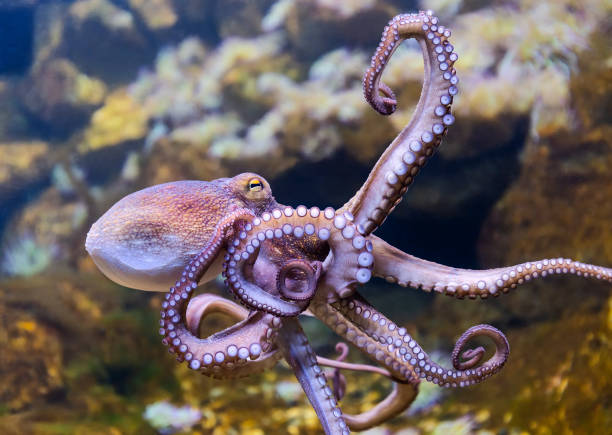"Unfolding the Mysteries of Octopus Intelligence: An Insight into their Cognitive Abilities"
The eight-armed, three-hearted creatures of the sea, octopuses, have fascinated scientists and researchers for decades. With their ability to solve puzzles, escape from tanks, and demonstrate complex behaviors, octopuses showcase an intelligence level that is unparalleled in the invertebrate world. This article delves into the intriguing world of octopus intelligence, tracing its historical context, recent developments, and their implications in the field of animal cognition.

History and Evolution of Octopus Intelligence
Octopuses were first recognized for their cognitive abilities in the early 20th century when researchers noted their problem-solving skills and adaptability. Over the years, numerous studies have further explored this, revealing intricate details about their intelligence. From being able to open jars to escaping aquariums, octopuses have demonstrated their ability to learn and adapt, challenging our understanding of intelligence.
Current Research and Discoveries
Recent studies have taken octopus research to new heights, uncovering more about their cognitive abilities. For instance, a 2019 study found that octopuses can recognize human faces, a trait typically associated with more complex mammals. This demonstrates an impressive degree of intelligence and adds a new dimension to our understanding of octopus cognition.
The Role of Octopus Intelligence in Pet Market
Octopuses are not traditional pets, but their intelligence has led some people to keep them in home aquariums. However, these creatures require specific conditions, like cold water and plenty of space, making them a challenge to care for. The price range for keeping an octopus as a pet can vary greatly, from a few hundred to several thousand dollars for more exotic species. As the market for these intelligent creatures grows, it raises ethical questions about keeping such sentient beings in captivity.
The Science Behind Octopus Intelligence
Octopuses possess large brains relative to their body size, and their nervous system comprises more than half a billion neurons. Interestingly, two-thirds of these neurons are found in their arms, which can independently taste and touch. Their decentralized nervous system allows them to perform complex tasks and respond to environmental changes swiftly. However, the science of octopus intelligence is still a burgeoning field, with many mysteries yet to be unraveled.
Impact and Future Implications
Research into octopus intelligence holds promising implications for various fields, including robotics and AI. Their unique nervous system and problem-solving abilities can provide insights into creating more efficient and adaptable technologies. However, as we continue to discover more about these fascinating creatures, it’s vital to consider the ethical implications of our interactions with them.
Octopuses have long been shrouded in mystery, their unique intelligence captivating and confounding researchers alike. As we peel back the layers of their cognitive abilities, we learn more about the diverse forms of intelligence in the animal kingdom, challenging our own understanding of cognition and consciousness. The study of octopus intelligence is a testament to the wonders of the natural world and the infinite possibilities of scientific discovery.




